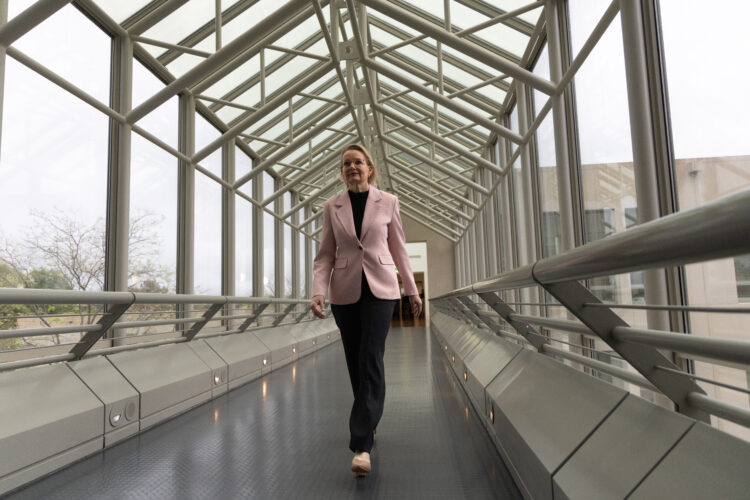Greg Jericho
Chief Economist
The Secretary of the Treasury Jenny Wilkinson, opens her first appearance as Sec of the Treasury with a statement that points out that Trump’s tariffs are expected to weigh on global growth, mostly in the US, but it’s all a bit of a mess a swell because even the legality of the tariffs is still yet to be resolved. She talks a bit about bond yields – which is mostly around disruptions and volatility – code for “there be uncertainty out there because of Trump”
She then notes that gold prices are reaching record highs because gold is safe and Trump is not, which means the US dollar is no longer as safe as it used to be.
She points out that here, household spending has increased recently – due to lower interest rates and that has been the main driver of the economy. Dwelling investment hasn’t been great, but is hoped to pick due to those lower interest rates.
She then turns to investment and notes there been a stack of investment for renewables while mining investment has fallen a touch.
Inflation is now down, due to good falls by drops in rents, insurance and new housing build price growth [but alas, rents seem to be going back up].
She points out that as inflation has fallen unemployment has not risen as much as it has in the past when we’re had interest rates go up to kill inflation, [so that’s good. And hopefully the RBA doesn’t do anything that causes unemployment to keep rising]
She has a bit of a plug for the economic roundtable and how a big outcome has been looking at regulations. [This is the whole “Abundance” palaver where apparently reducing regulations will unleash everything… and yeah… maybe]
Then she ends with a boast of the small budget deficit in 2024-25 budget of $10bn, mostly due to around $4bn lower spending and $12bn more revenue than expected.
And she ends with a talk about the climate change risk report and its modelling [this is something the LNP senators will bang on about because climate change is a bit of a myth in their view so they think all the risks are exaggerated, which mostly just reveals they don’t understand climate change, economic modelling or a risk assessment].


